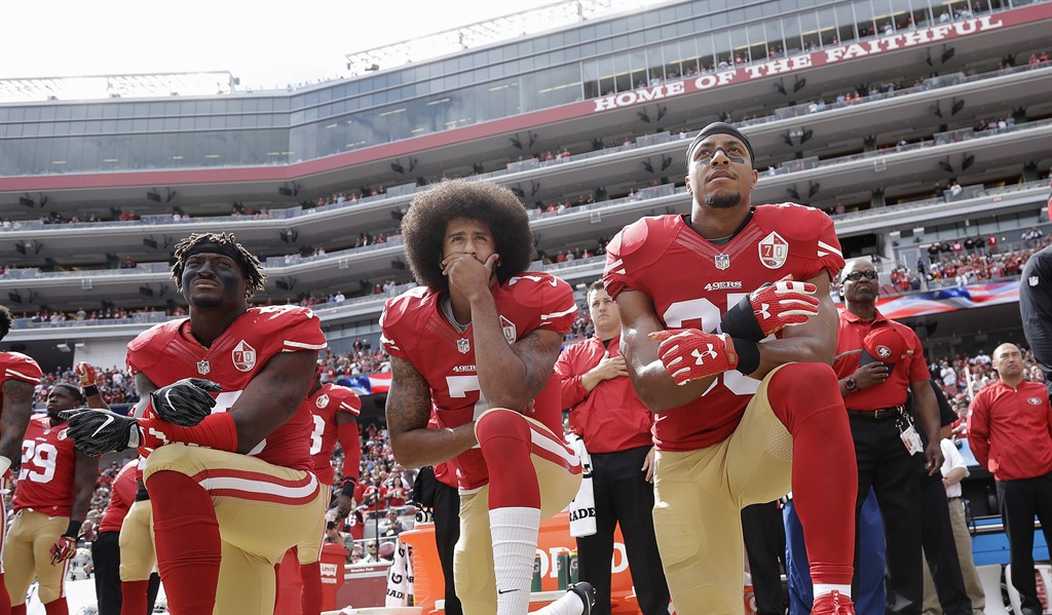The real answer to the question above is Yes, but… After months of denials over the impact of political protests during the national anthem at NFL games, JD Power decided to conduct a large-scale survey of sports fans to find the answer. ESPN’s Darren Rovell reported that the poll showed anthem protests, provoked and embodied by former 49ers quarterback Colin Kaepernick, led the reasons why they tuned out of professional football games in the 2016 season:
National anthem protests were the top reason that NFL fans watched fewer games last season, according to a new survey released by J.D. Power.
The pollster said it asked more than 9,200 people who attended either one football, basketball or hockey game whether they tuned into fewer games and why. Twenty-six percent of those who watched fewer games last season said that national anthem protests, some of which were led by Colin Kaepernick, were the reason.
Aha! Proof has been found that the protests hurt the league, and that Roger Goodell and the owners should have taken action to stop them, critics claimed. However, there are a couple of problems with this analysis, starting with the basic question it ignores. Did sports fans watch fewer games?
Actually … no:
J.D. Power noted that only 12 percent of the fans it surveyed said they watched fewer NFL games last season, with 27 percent of people saying they watched more and 62 percent saying they watched just as much as they had the season before.
So twice as many people in this survey watched more football than those who watched less. Given that less than a quarter of the 12% who watched less cited the protests, the conclusion would be that it didn’t really impact net viewership, although it might have created some opportunity costs.
However, even that statistic has a couple of problems. Rovell points out that the ratings last year fell off dramatically in the first half of the 2016 season compared to 2015, averaging 14% fewer viewers; the second half of the season improved to near-parity with the previous season, only off 1%. That doesn’t square with the idea that twice as many people watched more football than those who watched less. For whatever reason, viewers watched a lot less football overall.
So what’s the truth here? Selection bias may be the culprit here. The JD Power survey included only those who attended a major sporting event last year, a subset of overall TV viewers that has its own bias. Those who buy tickets to sporting events have a greater emotional investment in the product, so it’s not surprising that they watched more rather than less. The difference in viewership probably came from more casually engaged viewers, a population that matters to the NFL for future growth. A better survey would sample a large number of American adults, determine which had ever watched NFL football before 2016, and which among those watched less football and why.
Besides, even if the results on reasons turned out the same in a broader survey, the protests still only represented a relatively small part of the problem. Sixteen percent of the JD Power sample said that the presidential election distracted them from the games, which won’t be a problem in 2017, and another 20% said that lengthy commercial breaks drove them away, which the league has already started addressing. That outstrips those who walked away over the protests, and with those becoming passé now, the NFL should see a rebound in 2017.
Addendum: Kaepernick still has not signed with a team, and the assumption is that no other franchises want the PR headaches that accompany him. Wait until the pre-season and/or regular season starts, though; after a couple of QBs go down to injury, the market for 29-year-old Super Bowl quarterbacks is bound to get very, very lucrative.








Join the conversation as a VIP Member